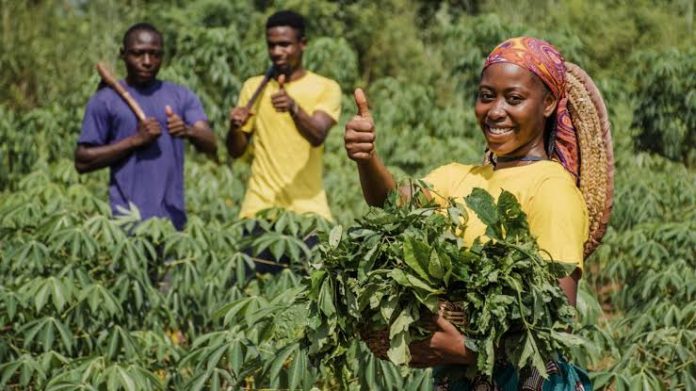The federal government has said it has plans to fast-track Phase I and Phase II of the African Development Bank’s (AfDB) Special Agro-Industrial Processing Zones (SAPZ) project to unlock the opportunities for food security, job security and increase the contribution of the sector to the GDP.
The Minister of Agriculture and Food Security, Sen. Abubakar Kyari, disclosed this at the opening of the SAPZ Phase II Inception Workshop in Abuja.
He added that the project is designed to diversify the country’s economy by changing agriculture to becoming a profitable economic venture.
The minister said the new administration is determined to give unprecedented attention to agriculture and food security, through schemes like the Special Agro-Industrial Processing Zones (SAPZ) project.
According to him, “We are determined to fast-track Phase I and Phase II of this project to unlock the opportunities for food security, job security and increase the contribution of the sector to the GDP.
“SAPZ has come to stay. All hands must therefore be on deck to ensure a successful implementation of the program in Nigeria.”
He noted the project would enable Nigeria to diversify its economy by changing agriculture to becoming a profitable economic venture and also provide a win-win scenario for investors, government, and citizens, adding that it was open for more collaboration from investors.
Director-General, Nigeria Country Department of AfDB, Lamin Barrow, said the SAPZ sought to promote the development of value chain for strategic commodities in Nigeria and across Africa.
He said, “They will provide world-class infrastructure to support food agribusinesses to locate close to zones of production and develop competitive value chains supported by logistic systems that will drive food processing and value addition.
“The SAPZs will help create massive wealth and jobs in rural areas and turn rural areas away from being zones of economic misery to zones of economic prosperity,”
He added that AfDB is developing SAPZs in 11 African countries. One each in Côte d’Ivoire, Guinea, Mali, Madagascar, Senegal, and Togo, and four in Ethiopia, with the Nigeria program being its largest, both in scale and scope as phase 1 is currently being implemented over five years in seven states.
The AfDB rep noted that the states taking part in the scheme include Cross River, Imo Kaduna, Kano, Kwara, Ogun, and Oyo, adding that the states were chosen based on readiness and to achieve a balance across Nigeria’s six geo-political zones.
“So far, the Bank has received Expression of Interest (EOI) from no fewer than 23 States across the six geo-political zones in the country,” he said.
“The States are: Lagos, Anambra, Benue, Ekiti, Delta, Gombe, Ondo, Jigawa, Katsina, Kebbi, Kogi, Nasarawa, Niger, Bayelsa, Bauchi, Ebonyi, Enugu, Osun, Rivers, Sokoto, Taraba and Borno.
“It is expected that at the end of the 2-Day discussion, the participating states will be screened and onboarded based on readiness and quality of entry criteria which will be deliberated upon during the workshop,”.
Earlier, Vice President Kashim Shettima said the federal government has mobilized half a billion U.S. dollars for innovative, profitable, equitable, and sustainable food systems transformation initiatives in the country.
The Vice President noted that the funds were sourced “through domestic resources, multilateral development banks, international financial institutions, climate funds leading agro-businesses and would be used for “Innovation finance for food system transformation; development of Nigeria’s agro value chain and Special Agro-Industrial Processing Zones programs.”
He further used the opportunity to unveil the VCDP- a collaboration between the government, private players, and food producers to the attendees at the summit.
“The VCDP which is co-funded by the government of Nigeria and the International Fund for Agricultural Development (IFAD), has empowered vulnerable farmers and youth to engage in commercial partnerships with some of the biggest food processing and marketing firms in the world such as OLAM, a world-leading agri-business company operating in over 60 countries with an annual revenue of about $39.8 billion,” the VP said.


